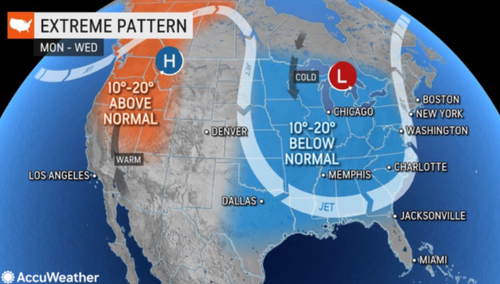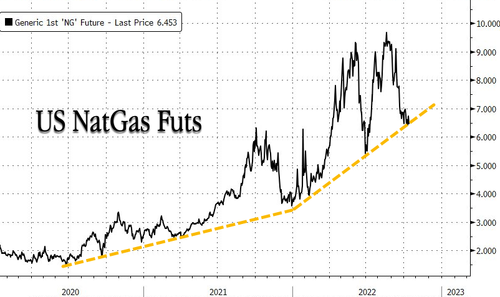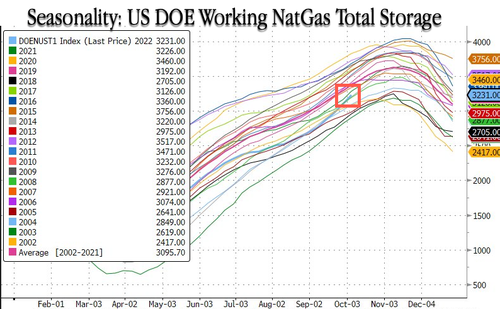Steve Bull's Blog, page 177
October 17, 2022
Overpopulation and the Collapse of Civilization
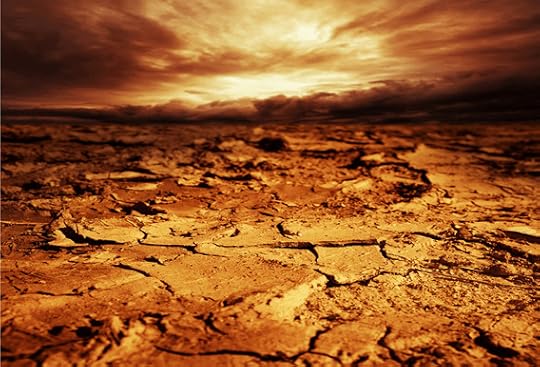
A major shared goal of the Millennium Alliance for Humanity and the Biosphere (MAHB) and Sustainability Central is reducing the odds that the “perfect storm” of environmental problems that threaten humanity will lead to a collapse of civilization. Those threats include climate disruption, loss of biodiversity (and thus ecosystem services), land-use change and resulting degradation, global toxification, ocean acidification, decay of the epidemiological environment, increasing depletion of important resources, and resource wars (which could go nuclear). This is not just a list of problems, it is an interconnected complex resulting from interactions within and between what can be thought of as two gigantic complex adaptive systems: the biosphere system and the human socio-economic system. The manifestations of this interaction are often referred to as “the human predicament.” That predicament is getting continually and rapidly worse, driven by overpopulation, overconsumption among the rich, and the use of environmentally malign technologies and socio-economic-political arrangements to service the consumption.
All of the interconnected problems are caused in part by overpopulation, in part by overconsumption by the already rich. One would think that most educated people now understand that the larger the size of a human population, ceteris paribus, the more destructive its impact on the environment. The degree of overpopulation is best indicated (conservatively) by ecological footprint analysis, which shows that to support today’s population sustainably at current patterns of consumption would require roughly another half a planet, and to do so at the U.S. level would take four to five more Earths.
…click on the above link to read the rest…
Richard Heinberg: Limits and prospects for human survival
October 16, 2022
Fed Defending Dollar No Matter What Crashes – Catherine Austin Fitts
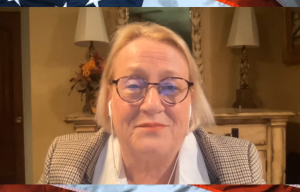 Catherine Austin Fitts (CAF), Publisher of The Solari Report and former Assistant Secretary of Housing (Bush 41 Admin.), says what is coming for the economy is pain–and lots of it. CAF explains, “We are either in a major correction or we are going to go into a bear (market), and a lot of it depends on many different politics. If you look at the money being pumped out . . . on climate change, on green energy, environment and all these different new sort of scams, it depends on how they inject money. It’s either a major correction or it could turn into a bear (market). There is no way to tell because it is purely political.”
Catherine Austin Fitts (CAF), Publisher of The Solari Report and former Assistant Secretary of Housing (Bush 41 Admin.), says what is coming for the economy is pain–and lots of it. CAF explains, “We are either in a major correction or we are going to go into a bear (market), and a lot of it depends on many different politics. If you look at the money being pumped out . . . on climate change, on green energy, environment and all these different new sort of scams, it depends on how they inject money. It’s either a major correction or it could turn into a bear (market). There is no way to tell because it is purely political.”
Various Fed presidents are repeatedly saying the central bank is going to continue raising interest rates. Why? CAF says, “I think they are going to keep raising interest rates. If you are Federal Reserve, you are playing a global game, and what you have to do is protect the reserve currency status. It looks like to me they have decided that all the BIS (Bank of International Settlements) members need to be in the dollar channel. They are doing everything they can to collapse the market share of the euro and then move that into the dollar syndicate. I think they have to keep driving the dollar up. The U.S dollar index is up to 113, and at one point, it was at 114. One analyst said it was going to 120. They have the entire frontier market and the emerging markets in a bear trap, and that is very significant power. If you are going to go into the woods and shoot the bear, you can’t wound the bear, you have to kill the bear…
…click on the above link to read the rest…
Are Green Resource Wars Looming?
The Burden of Massive EV Batteries Will Be Borne by People and Ecosystems
Much of the excitement over the Inflation Reduction Act, which became law this summer, focused on the boost it should give to the sales of electric vehicles. Sadly, though, manufacturing and driving tens of millions of individual electric passenger cars won’t get us far enough down the road to ending greenhouse-gas emissions and stanching the overheating of this planet. Worse yet, the coming global race to electrify the personal vehicle is likely to exacerbate ecological degradation, geopolitical tensions, and military conflict.
The batteries that power electric vehicles are likely to be the source of much international competition and the heart of the problem lies in two of the metallic elements used to make their electrodes: cobalt and lithium. Most deposits of those metals lie outside the borders of the United States and will leave manufacturers here (and elsewhere) relying heavily on foreign supplies to electrify road travel on the scale now being envisioned.
Adventurers and Opportunists
In the battery business, the Democratic Republic of Congo is referred to as “the Saudi Arabia of cobalt.” For two decades, its cobalt — 80% of the world’s known reserves — has been highly prized for its role in mobile-phone manufacturing. Such cobalt mining has already taken a terrible human and ecological toll.
Now, the pressure to increase Congo’s cobalt output is intensifying on a staggering scale. Whereas a phone contains just thousandths of a gram of cobalt, an electric vehicle battery has pounds of the metal, and a quarter-billion such batteries will have to be manufactured to fully electrify the American passenger car fleet as it now exists.
…click on the above link to read the rest…
Turkey Adopts Legislation That Could Jail Journalists for ‘Disinformation’
 Peoples’ Democratic Party’s Zuleyha Gulum holds a banner “Truths cannot be obscured” as she stands with a covered mouth, in protest over a new media law that could lead to up to three years of jail for spreading “fake news” by reporters and social networks users, at the Turkish Grand National Assembly in Ankara, Turkey, on Oct. 13, 2022. (Adem Altan/AFP via Getty Images)Turkey Adopts Legislation That Could Jail Journalists for ‘Disinformation’Measure heads to president for final approval
Peoples’ Democratic Party’s Zuleyha Gulum holds a banner “Truths cannot be obscured” as she stands with a covered mouth, in protest over a new media law that could lead to up to three years of jail for spreading “fake news” by reporters and social networks users, at the Turkish Grand National Assembly in Ankara, Turkey, on Oct. 13, 2022. (Adem Altan/AFP via Getty Images)Turkey Adopts Legislation That Could Jail Journalists for ‘Disinformation’Measure heads to president for final approvalTurkish lawmakers have voted to adopt a law that aimed at preventing “disinformation” in the media and online, despite widespread concerns about the measure’s potential to quash free speech.
Lawmakers from President Tayyip Erdogan’s ruling Justice and Development Party (AKP) and the Nationalist Movement Party (MHP), which together have a majority, voted in parliament on Thursday to approve the legislation. The bill now goes to Erdogan for final approval.
While government officials have said the highly controversial bill is needed to combat fake news and disinformation, opposition members of parliament as well as European countries and media rights activists have called to scrap it.
Many have taken issue with article 29 in the measure, saying that it may be used to enforce censorship and quash free speech, as well as threaten independent journalism, since the Turkish government currently controls a majority of major news outlets in the country.
Article 29 says that people who are found guilty of spreading false information online intended to “create fear and disturb public order” could be punished with a prison sentence of one to three years. The measure also stipulates that if anonymous accounts are used to spread the alleged disinformation, sentences can be increased by up to half.
…click on the above link to read the rest…
How Do We Teach the Critical Skills Needed to Face Collapse?
 So civilization, at least as we know it, is going to collapse — political, economic, social, educational, health, transportation, technological systems all will fail, a bit a first, and then more and more.
So civilization, at least as we know it, is going to collapse — political, economic, social, educational, health, transportation, technological systems all will fail, a bit a first, and then more and more.
We have no idea when it will be complete — could be in 10 years, or in 40. We have no idea how it will play out — how quickly, where first, what systems and governments will go first.
We don’t even know how people will react to this Slow (and Permanent) Emergency. So how can we possibly prepare for it?
I think the best answer to this is to teach a lot of people a lot of skills, hard and soft, that they don’t currently have, so that we’re kind of ready for anything. Here’s a list of ten possibly critical soft skills, and ten possibly critical hard skills, that very few of us (in most countries) are competent at at the moment. The ones in italics are, IMO, those that it is important that most people learn; for the remainder, it’s important that some people in each community be very competent at them:
Soft Skills:
Critical thinking — the ability to think for yourself, reason things through, be self-aware of how emotions play into each issue, and basically the capacity to study, research, analyze, problem-solve and learn without being spoon-fed.Group facilitation — the ability to help groups work and think collectively, achieve consensus, resolve conflicts, and manage themselves, notably by modelling exemplary facilitation skills themselves.Helping people cope — the ability to counsel others on dealing with and healing from loss, uncertainty, fear, grief, shame, anger, anxiety and other emotions that will inevitably arise and make people dysfunctional as the crises of collapse unfold.Preparing healthy food — the ability to cook and otherwise prepare, blend, and complement foods “from scratch”.…click on the above link to read the rest…
Oil, war and the fate of industrial societies
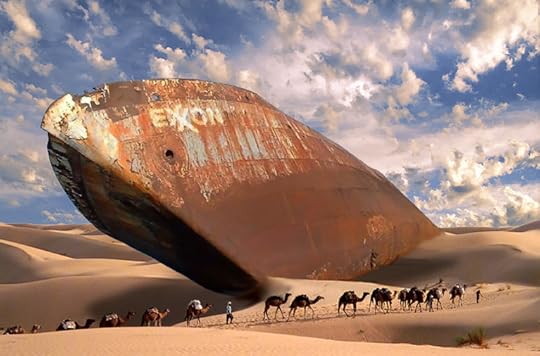 The world teeters on the brink of economic disaster due to energy shortages caused by war. The main oil-producing nations are unable and unwilling to increase output, even though prices are high and threatening to go much higher. The solutions being proposed—electric cars and renewable energy technologies—are coming on line, but not fast enough. Building them to the scale required to maintain current levels of economic activity and societal complexity would require enormous amounts of minerals and metals that are also becoming scarce. We appear to be hurtling toward geopolitical and economic turmoil.
The world teeters on the brink of economic disaster due to energy shortages caused by war. The main oil-producing nations are unable and unwilling to increase output, even though prices are high and threatening to go much higher. The solutions being proposed—electric cars and renewable energy technologies—are coming on line, but not fast enough. Building them to the scale required to maintain current levels of economic activity and societal complexity would require enormous amounts of minerals and metals that are also becoming scarce. We appear to be hurtling toward geopolitical and economic turmoil.Does anything about this scenario sound familiar? It might. It happens to be almost exactly what I discussed in my book The Party’s Over: Oil, War and the Fate of Industrial Societies, published in 2003. I have no interest in rubbing salt in society’s worsening wounds by saying “I told you so,” but it would be a dereliction of duty for me not to point out the facts.
My book was one of the first to discuss peak oil—the point when supplies of the world’s most economically pivotal resource start to dwindle. Of course, the most pessimistic predictions for the timing of the peak were wrong. Many analysts thought that petroleum production would start to decline in the years between 2005 and 2010. Instead, the rate of global conventional oil extraction flatlined during that period, and is just now beginning to descend from its long plateau. Meanwhile, unconventional oil (tar sands and tight oil produced by fracking and horizontal drilling) enabled new heights of production starting around 2010. The general consensus thereafter was that oil supplies can easily continue to increase for the foreseeable future; all it takes is more investment.
…click on the above link to read the rest…
Energy Aware
 Energy Aware
Energy AwareThe United States is energy independent. Banning oil exports would lower oil prices. Strategic Petroleum Reserve releases lowered gasoline prices. There is a shortage of refinery capacity in the U.S. The cancelation of the Keystone XL Pipeline has limited U.S. oil supply and contributed to higher energy prices.
These popular memes are wrong.
The U.S. is not Energy Independent
The U.S. produced about 11.3 mmb/d of crude oil in 2021 and imported about 6 mmb/d of crude oil per day. That doesn’t sound very energy-independent.
When politicians and journalists talk about American energy independence, they’re not really telling the truth. They’re playing with truth. The energy independence meme confuses oil and refined products. They’re not the same. Let me review the facts.
The U.S. is a net importer of crude oil. U.S. net imports of crude oil averaged 2.9 mmb/d in the first seven months of 2022 (Figure 1 blue fill). That’s way down from almost 9.4 mmb/d during the same period in 2001, and moving in the right direction but it’s hardly energy independent.
The U.S. is a net exporter of refined products. Net exports averaged 5.9 mmb/d in 2022.
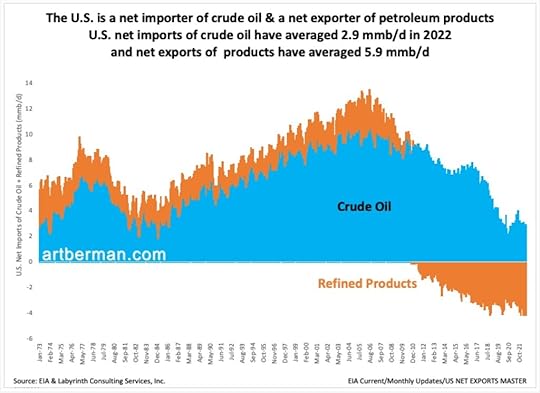 Figure 1. The U.S. is a net importer of crude oil & a net exporter of petroleum products. U.S. net imports of crude oil have averaged 2.9 mmb/d in 2022 and net exports of products have averaged 5.9 mmb/d. Source: EIA & Labyrinth Consulting Services, Inc.
Figure 1. The U.S. is a net importer of crude oil & a net exporter of petroleum products. U.S. net imports of crude oil have averaged 2.9 mmb/d in 2022 and net exports of products have averaged 5.9 mmb/d. Source: EIA & Labyrinth Consulting Services, Inc.The problem arises when crude oil and the products refined from it are combined. That’s the blue curve in Figure 3 and voila. A country that imports more oil than Europe uses, magically became a net exporter in October 2021.
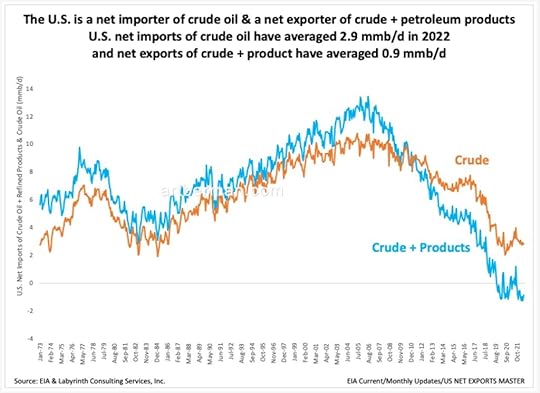 Figure 3. The U.S. is a net importer of crude oil & a net exporter of crude + petroleum products. U.S. net imports of crude oil have averaged 2.9 mmb/d in 2022 and net exports of crude + product have averaged 0.9 mmb/d. Source: EIA & Labyrinth Consulting Services, Inc.
Figure 3. The U.S. is a net importer of crude oil & a net exporter of crude + petroleum products. U.S. net imports of crude oil have averaged 2.9 mmb/d in 2022 and net exports of crude + product have averaged 0.9 mmb/d. Source: EIA & Labyrinth Consulting Services, Inc.…click on the above link to read the rest…
Arctic Blast To Blanket Eastern Half Of US Next Week
A cold blast will descend on the eastern US early next week, forcing tens of millions of Americans to turn on their heaters or fire up their stoves as the cold season comes early.
“It will feel more like November for many next week,” AccuWeather Senior Meteorologist Tyler Roys said.
Unseasonably cold weather begins Monday and could last through the week and extend down to the Gulf of Mexico. There’s also a risk of snow across the Great Lakes, Midwest, and New England.
AccuWeather’s models expect temperatures to dive 10-20 degrees Fahrenheit below average for the first half of next week for the entire eastern half of the country.
“Daytime temperatures will be stuck in the 30s and 40s F across the upper Mississippi Valley and Great Lakes region on Monday. Highs are forecast to generally be in the 40s across the interior Northeast on Tuesday, with 50s from Washington, DC, to Boston,” AccuWeather said.
The cold blast would indicate surging demand for power as tens of millions of Americans crank up their thermostats to stay warm. Heating demand will rise next week and may put a bid under natural gas prices.
Some good news is US NatGas prices have declined for eight consecutive weeks, with prices down more than 30% from a 14-year high in August.
But the downturn could be short-lived because US NatGas stockpiles are still below average for this time of year.
“Globally, we’re feeling better about ourselves and about the natural gas storage levels that we have now,” Gary Cunningham, director of market research at risk management firm Tradition Energy, told Bloomberg last week.
Cunningham said traders have so far priced in mild temperatures in NatGas markets for the Northern Hemisphere, which helps curb demand but warned, “All of that can change very quickly and dramatically if we have a cold start to winter.”
October 14, 2022
Planetary Gas Chamber not “Climate Change”
 We have been aware that burning fossil fuels would alter, destabilise and warm the atmosphere since at least 1847 and the narrative has been controlled since shortly thereafter.
We have been aware that burning fossil fuels would alter, destabilise and warm the atmosphere since at least 1847 and the narrative has been controlled since shortly thereafter.Had we described the phenomenon as creating what it is, a “Planetary Gas Chamber” for most, if not all complex life on the planet, perhaps we might have acted to save the biosphere rather than perpetuate the extraction industry which is in the accelerating process of incinerating the entire ecosystem.
What an incredible irony that a Republican Congressman from the USA was the first person (that I am aware of, feel free to correct me below if I’m wrong) to give a lecture on human induced climate change.
We have been through a raft of ‘slogans’ that have all downplayed the reality that the unfettered incineration of fossil fuels would negatively alter the atmospheric energy and ‘Green House Gas’ balance. “Green House”, such an innocuous term for an existential threat, tailored to not scare the serfs.
A near-forgotten speech made by a US congressman warned of global warming and the mismanagement of natural resources in 1847
The 1847 lecture that predicted human-induced climate change.
“But I would argue his defining moment came on 30 September 1847, when, as a congressman for the Whig party (a forerunner of the Republican party), he gave a lecture to the Agricultural Society of Rutland County, Vermont. (The speech was published a year later.) It proved to be the intellectual spark that led him to go on and publish in 1864 his best-known work, Man and Nature: Physical Geography as Modified by Human Action.”
…click on the above link to read the rest…

